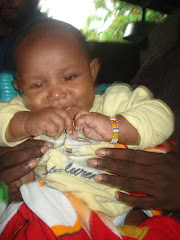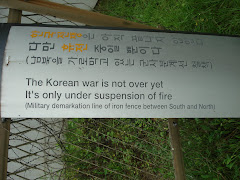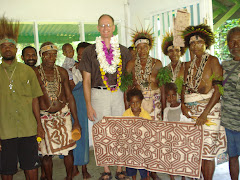Today is the last Sunday of Advent, and I have been evaluating my Christmas preparations.
Hallmark and Macy’s might say I squandered 4 good weeks: I bought nearly nothing, sent out 3 cards to my siblings.
But the Advent call for preparation is not meant solely—if at all—in such materialistic terms. Once I put aside the niggling feelings of guilt when I look at my address book and sort through the stack of pretty cards I’ve received, I find myself thinking of my preparations for the celebration of Christmas, and in a larger sense the return of Jesus at the Second Coming.
There are four classic themes for Advent, clustering around the word/concepts of heaven, hell, death and judgment: not on balance greeting card sentiments. I generally just take a vaguer notion of “preparation” when thinking of Advent. But this year the older ideas give me a framework for a variety of experiences that seem important to my spiritual preparation for Christmas.
I spent the first two Sundays of Advent in Iran. In Shi’ite Islam they expect the imminent return of the 12th Imam, and even have organizations to welcome him, the Bright Future Association. His arrival is about social justice, fulfillment, and peace. It all sounds pretty familiar. I suppose my own eschatology partly inspired my trip, laboring in the proleptic kingdom. I was working for justice and peace, exploring what it means to be a human being on this earth at the start of the 21st Century.
About the classic theme of Advent judgment: what have I done for the least among us? What have I contributed to the betterment of humanity? How have I shared the good news of God’s reign with my fellow humans? My trip to Iran was the first time I’ve ever been able to participate in such a trip. It really was a pilgrimage of peace and trust, seeking out the signs of hope and beauty in Iran—among a people the USA fears. Yesterday I was able to join a colleague from the trip in giving a “report-back” to people from Code Pink and some of my Franciscan brothers and sisters.
Bringing the work for justice closer to home, on the third Sunday of Advent I was at Little Portion Friary. I cooked for the Advent retreat for persons living with HIV and AIDS. One of our Franciscan contributions to fighting the pandemic is to offer a place of quiet healing, friendship (and good food!) to help renew and strengthen people living with the virus. Many of our guests have come for this retreat for many years and they anticipate it, sending in reservations in September and October.
Another one of the themes of Advent is death. This week one of the novices of Society of St. Francis, Br. Daniel Komota, died. He died from an asthma attack. He was at one of our formation houses in Oro Province in Papua New Guinea. He was a young man in his twenties. I only met him once, yet his passing fills me with sadness. Life is so fragile.
Yet when I consider his death in the context of Heaven, I have to fumble toward gratitude. I am grateful he was able to live out his calling, to be a brother. I am grateful for his witness to the Gospel, dedicating his life to it. None of us know how long we have. Somehow heaven is the place where all life’s perplexities are held in love. I wonder, do they get fully explained? Heaven is the place where our puny human lives are accounted as more precious than gold; am I able to account for this in my earthly interactions? Do I think of all the people I meet as of great value? Surely the story of Jesus’ birth in a stable points to the value and worth of everyone in the heavenly perspective. Daniel’s brief time as a friar makes me think of one of the Kingdom parables Jesus told when he talked about the hired hands getting their wages at the end of the day. The steward is instructed to give the workers who were hired at the end of the day the same as those who were hired in the morning. That is how it is with heaven: we are never too late, too young, the wrong sex or sexual orientation, the wrong race, just a novice, or way past our prime. All are welcome.
I didn’t think I’d have much to say about Hell. But we live in an age of war. I think war is hell, and what is going on in Zimbabwe comes very close to it (I’ve attached a letter from Zimbabwe below. Also sometimes the space between my ears can be really miserable, and I have to reach out to others: calling Papua New Guinea, go shopping for tiny gifts for my parents, volunteering to cook food. The sense of isolation or inadequacy or futility can undermine my confidence and erode my joy. Hell, indeed; and I need Jesus’ Gospel to keep me firmly grounded in hope and gratitude.
Which brings me back to the theme of preparation.
I have begun preparations for my next trip, something I really enjoy doing. This time I’ll be going to Africa in March and April. The requirements for the travel include yellow fever shots, more anti-malarial medications. Tomorrow I take my yellow fever shot. I’ve been making phone calls to my contacts in Cameroon, South Africa and Zimbabwe. I have no idea what I’ll find or what I’ll be able to do. I hope I will be able to share life with the brothers, eat their food, tell stories, knit together a sense of fraternity and friendship, mobilize awareness about the conditions especially in Zimbabwe, to do my part. Part of Advent then is doing what I can do today in preparation for the future. But I have no control over that. It will happen on its own terms, there are so many things I cannot know. Life is so fragile; which makes it ravishingly beautiful, and fills me with wonder and joy and determined to do all in my power to preserve, protect and enhance it. Prepare to do more peace work, prepare for the Prince of Peace.
Here is a recent letter from Zimbabwe. Please pray for them and my visit.
Letter from Zimbabwe sent in by John Winter
I reckon that these are the last days of TKM and ZPF. The darkest hour is always before dawn.
We are all terrified at what they are going to destroy next........I mean they are actually ploughing down brick and mortar houses and one family with twin boys of 10 had no chance of salvaging anything when 100 riot police came in with AK47's and bulldozers and demolished their beautiful house - 5 bedrooms and pine ceilings - because it was 'too close to the airport', so we are feeling extremely insecure right now.
You know - I am aware that this does not help you sleep at night, but if you do not know - how can you help? Even if you put us in your own mental ring of light and send your guardian angels to be with us - that is a help -but I feel so cut off from you all knowing I cannot tell you what's going on here simply because you will feel uncomfortable. There is no ways we can leave here so that is not an option.
I ask that you all pray for us in the way that you know how, and let me know that you are thinking of us and sending out positive vibes... that's all. You can't just be in denial and pretend/believe it's not going on.
To be frank with you, it's genocide in the making and if you do not believe me, read the Genocide Report by Amnesty International which says we are - IN level 7 - (level 8 is after it's happened and everyone is in denial).
If you don't want me to tell you these things-how bad it is-then it means you have not dealt with your own fear, but it does not help me to think you are turning your back on our situation. We need you, please, to get the news OUT that we are all in a fearfully dangerous situation here. Too many people turn their backs and say - oh well, that's what happens in Africa
This Government has GONE MAD and you need to help us publicize our plight---or how can we be rescued? It's a reality! The petrol queues are a reality, the pall of smoke all around our city is a reality, the thousands of homeless people sleeping outside in 0 Celsius with no food, water, shelter and bedding are a reality. Today a family approached me, brother of the gardener's wife with two small children. Their home was trashed and they will have to sleep outside. We already support 8 adult people and a child on this property, and electricity is going up next month by 250% as is water.
How can I take on another family of 4 -----and yet how can I turn them away to sleep out in the open?
I am not asking you for money or a ticket out of here - I am asking you to FACE the fact that we are in deep and terrible danger and want you please to pass on our news and pictures. So PLEASE don't just press the delete button! Help best in the way that you know how.
Do face the reality of what is going on here and help us SEND OUT THE WORD.. The more people who know about it, the more chance we have of the United Nations coming to our aid. Please don't ignore or deny what's happening.
Some would like to be protected from the truth BUT then, if we are eliminated, how would you feel? 'If only we knew how bad it really was we could have helped in some way'.
[I know we chose to stay here and that some feel we deserve what's coming to us]
For now,--- we ourselves have food, shelter, a little fuel and a bit of money for the next meal - but what is going to happen next? Will they start on our houses? All property is going to belong to the State now. I want to send out my Title Deeds to one of you because if they get a hold of those, I can't fight for my rights.
Censorship!----We no longer have SW radio [which told us everything that was happening] because the Government jammed it out of existence - we don't have any reporters, and no one is allowed to photograph. If we had reporters here, they would have an absolute field day. Even the pro-Government Herald has written that people are shocked, stunned, bewildered and blown mindless by the wanton destruction of many folks homes, which are supposed to be 'illegal' but for which a huge percentage actually do have licenses.
Please! - do have some compassion and HELP by sending out the articles and personal reports so that something can/may be done.
'I am one. I cannot do everything, ---but I can do something.. And because I cannot do everything, I will not refuse to do the something that I can do. What I can do, I should do. And what I should do, by the grace of God,
I will do.'
Edward Everett Hale














